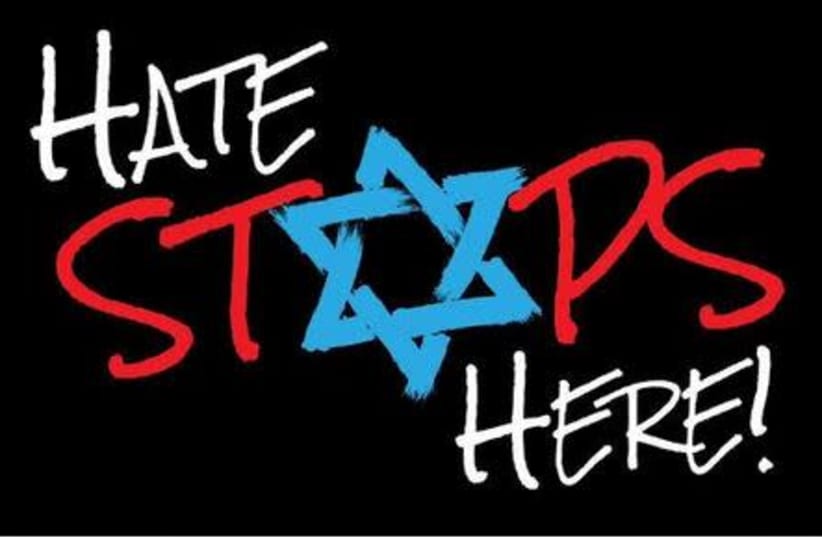“For, not only one arose and tried to destroy us, rather in every generation they try to destroy us, and God saves us from their hands.”
In other words, since the Exodus 3,500 years ago, when Pharaoh enslaved the children of Israel, Jews have lamented that antisemitism perpetually revives and threatens our people. At the same time, we rejoice that God ensures the Jewish people’s survival and strength in every generation.
Never has this duality and paradox been truer than it is today. This year, we have witnessed an exponential growth of antisemitism in Europe including antisemitic invective by members of France’s Yellow Vest movement and a carnival float in the city of Aalst, Belgium, featuring a grotesque caricature of hooked-nosed hassidim reaching out greedily for money. In Britain, Labour Party leader Jeremy Corbyn has consistently refused to condemn antisemitism, causing some Jewish Labour MPs to quit in disgust. Recently, France’s Interior Ministry reported that recorded incidents of antisemitism rose from 311 in 2017 to 541 in 2018, while the German government said offenses motivated by hatred of Jews hit a 10-year high of 1,646 in 2018.
Yet in contrast to Europe, we have witnessed newfound opportunities in the Muslim world for Muslim-Jewish dialogue and peaceful coexistence.
I have personally engaged for over a decade in paradigm-shifting meetings with monarchs and government officials in Saudi Arabia, Bahrain, Qatar, the United Arab Emirates and other Islamic countries, where I have experienced firsthand a profound shift in attitude not only to the Jewish people, but to the State of Israel as well. Until recent years, there used to be a tendency to bifurcate Israel and Judaism. Today, more Muslim countries realize that Israel is at the core of the Jewish religion, and acknowledge that Judaism and Israel cannot be separated. We even see a warming of Israel-Gulf relations that is likely to result in one or more Gulf states establishing diplomatic ties with Israel in the very near future.
This palpable warming between Israel and the Gulf, and with other Muslim countries from Azerbaijan to Chad, goes hand-in-hand with a decade-old movement toward reconciliation and rapprochement between Muslim and Jews.
THE REPUBLIC of Azerbaijan is well-known for protecting and supporting its Jewish community. In 2011, a synagogue was built for the community of Mountain Jews. Jewish schools are operating in Baku and the city of Guba. In a very near future, Mountain Jews will have their own Jewish museum, and President Ilham Aliyev, during our recent meeting in Azerbaijan, announced that the country’s first-ever Jewish cultural center will be built in Baku, with kosher dining options and a hotel to accommodate Jewish guests.
The Kingdom of Bahrain, one of the most progressive Gulf countries, takes pride in its indigenous Jewish population and the only historic synagogue in the region. Recently, His Majesty King Hamad bin Isa Al Khalifa appointed me as special adviser with the mandate of preserving and building the Jewish community of Bahrain.
News has spread throughout the world that a young and vibrant Jewish community is growing in Dubai that was officially recognized just several months ago by United Arab Emirates officials.
Qatar, which will be hosting the World Cup 2022, has asked me to facilitate kosher food and other amenities to accommodate the many Jewish fans that will be in attendance.
In a message to the United States Holocaust Memorial Museum, Mohammed Al Issa, secretary-general of the Muslim World League, which is based in the Kingdom of Saudi Arabia, condemned Holocaust-deniers and advocated for Holocaust education in the Muslim world.
Our two communities have come to acknowledge both our common faith and our common fate. In this spirit, Jews and Muslims across the world are standing together to defend democracy and pluralism, and to fight against Islamophobia, antisemitism and all forms of racism.
We have been inspired in recent months to witness Muslims and Jews consoling, supporting and uplifting each other in moments of tragedy; most vividly after the shootings of Jewish and Muslim worshipers by white nationalists at the Tree of Life Synagogue in Pittsburgh, and at two mosques in Christchurch, New Zealand.
So, when I utter the Vehi She’amdah declaration at the Seder table, I will do so from a buoyant and promising perspective. Yes, antisemitism is again on the rise in Europe and elsewhere, but the simultaneous upturn of relations between Israel and the Gulf and Muslims and Jews globally give us a renewed sense of hope and optimism for the future. Let us strengthen our commitment to building Jewish-Muslim relations as a way to ensure a more secure and redemptive world for the children of Abraham.
The writer is president of the Foundation for Ethnic Understanding. He co-authored Sons of Abraham: A Candid Conversation about the Issues that Divide and Unite Jews and Muslims with Imam Shamsi Ali.
